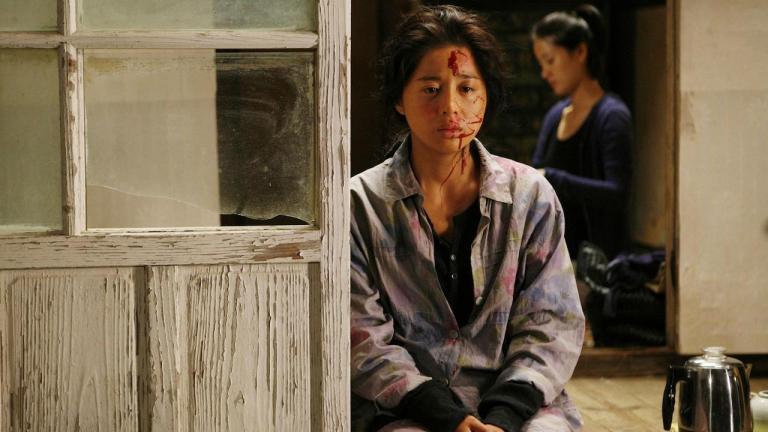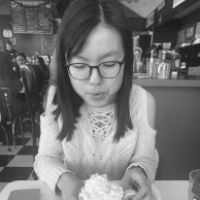Bedevilled Is The Most Underrated Korean Horror Movie
Jang Cheol-soo's Bedevilled is not a film many talk about while considering the best of Korean horror cinema. That should change.

In recent years, South Korean cinema has received well-deserved international attention for its unique blends of genre, societal commentary, and unpredictability. While several prominent Korean films garnered significant attention abroad, namely Parasite, there is one film that deserves more recognition: Bedevilled, the 2010 directorial debut of Jang Cheol-soo. While Cheol-soo became most known for his comedy-drama movie Secretly, Greatly, his horror film Bedevilled is a must-watch for any genre junkie.
The trick to understanding South Korean horrors is they often explore multiple intense emotions outside of fear. This includes sadness, despair, regret, and helplessness. They don’t scare us in a way that evokes our fight-or-flight response. Instead the movies’ themes provoke us to question society, the human condition, and our own personal actions. Bedevilled, which means to torment or harass, introduces us to childhood friends Hae-won (Ji Seong-won), an office worker in Seoul, and Bok-nam (Seo Yeong-hie), a lifelong resident of a secluded island called Mudo. Despite being over a decade old, Bedevilled’s portrayal of misogyny, the futility of revenge, and the consequences of being a bystander remain incredibly relevant.
The movie opens with the bustling sounds of Seoul’s nightlife. The atmosphere is surrounded by the noise of city traffic and ordinary citizens laughing a night away. Suddenly a scream is heard. A woman escapes being physically assaulted by a group of men and pleads for one of the cars to help her. The driver is Hae-won, who quickly pulls up her windows and continues her drive. A few days later, Hae-won is called into the police station as a witness to the crime but refuses to cooperate as she finds the task tedious since it doesn’t affect her.
Wanting an escape, Hae-won decides to vacation on her home island of Mudo, visiting her friend Bok-nam who giddily greets her. Bok-nam takes Hae-won on a walk down memory lane; touching a wooden frame etched with aged scrawlings of their names from childhood, and bathing each other in a pond. Bok-nam welcomes Hae-won with warm hospitality, crafting meals, hand washing her clothes, and sneaking a pillow underneath her head after an exhausting boat ride to the island.
While Bok-nam’s kindness is evident, she is relentlessly abused by nearly every inhabitant of this island. The remoteness of Mudo is reflected in its oppressiveness and outdated gender expectations of its residents. Every day, Bok-nam is physically and sexually abused by her husband and brother-in-law, and berated by the island women for failing to be a dutiful and loyal wife to her husband. Bok-nam’s one respite is her center of the world: her elementary school-aged daughter, Yeon-hee. One day, she dreams of escaping to Seoul to garner opportunities for Yeon-hee, just as she believes Hae-won has.
Viewing Hae-won as not only a loyal friend but a savior, Bok-nam pleas for her friend’s assistance to leave the island. However, she is dismissed by Hae-won, leading Bok-nam to experience an agonizing loss. Hae-won is then presented with another opportunity to intervene in a developing tragedy, but refuses to engage due to pressure from the villagers and attempts to leave the island without a word to Bok-nam, not wanting to deal with the aftermath. This chain of events sets off Bok-nam’s decision to take matters into her own hands, as the film devolves into more Western ideas of horror—and bloody, bloody revenge.
Hae-won is a character that epitomizes the phrase, “The only thing necessary for the triumph of evil is for good men to do nothing.” She is apathetic in the face of suffering and chooses to turn a blind eye to those in significant pain. In essence, she is meant to symbolize urban apathy typically associated with large cities like Seoul or New York City. Cheol-soo purposely introduces Mudo island as a scenic vacation destination with a small but intimate community. This assumption and our knowledge that Hae-won was looking for a respite from her fast-paced life in Seoul causes us to assume that Mudo will be a paradise. The gradual revelation of Bok-nam’s daily horror on the island creates a strong contrast to the beautiful surroundings.
In the most pivotal scene of the movie, Hae-won witnesses the full brunt of Bok-nam’s abuse, but when the police arrive, she lies and claims she was asleep and therefore did not witness what happened. At this moment, Bok-nam lost a close friend and a savior she believed would rescue her from her suffering on the island. It is this loss that causes Bok-nam to go mad and begin massacring the island inhabitants. The extremeness of her treatment, even by other women, is one of the reasons why Hae-won’s indifference is so disturbing and scary. It’s difficult to conceive that someone could be so callous. Only after Bok-nam butchers most of the island inhabitants does Hae-won begin to actively intervene in crises.
Oftentimes in media, we see the consequences of a character’s action but rarely do we see a film so thoroughly explore the repercussions of inaction. But we see that what makes individuals inhuman isn’t just the amount of cruelty we’re capable of, but also the extent to which we’re willing to turn a blind eye to that cruelty.
At the end of the film, when Hae-won realizes the consequences of her inaction following Bok-nam’s massacre and death, she identifies the perpetrators of the violent assault and murder we witnessed at the beginning of Bedevilled. She returns home and reads through unopened letters sent by Bok-nam asking for help. After reading through each, she places one on her side and stares dejectedly at the ceiling. As she lies on the floor, the image transitions to the outside of the island, now completely uninhabited.
Bedevilled is a story about the subtle and real horrors of being a bystander to terrifying events. And that should scare us.
